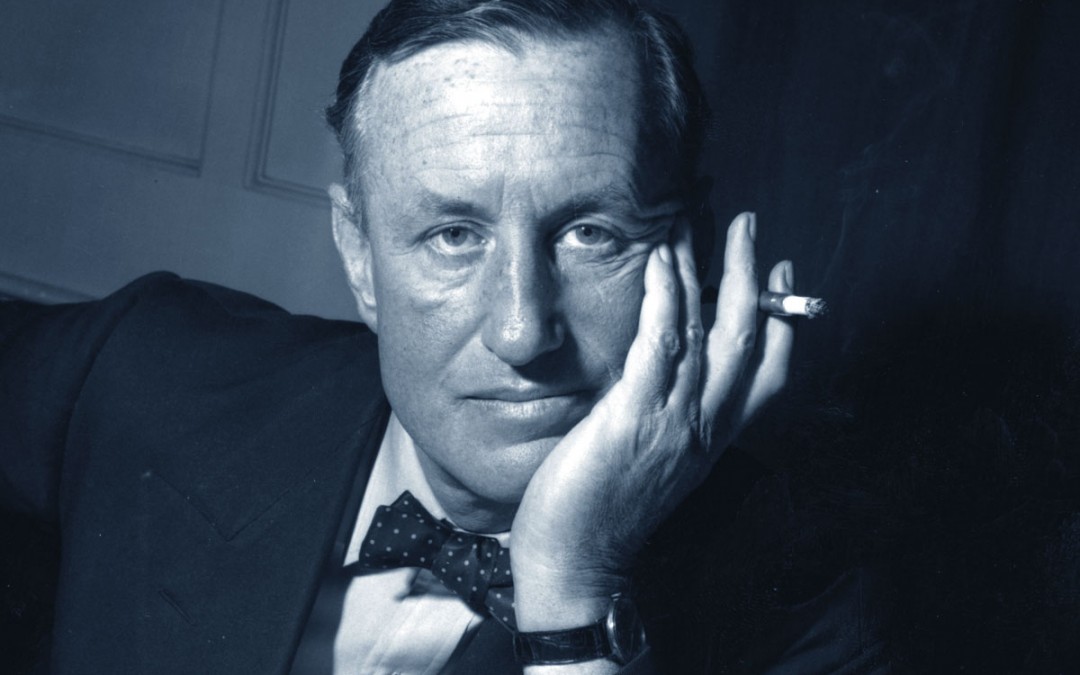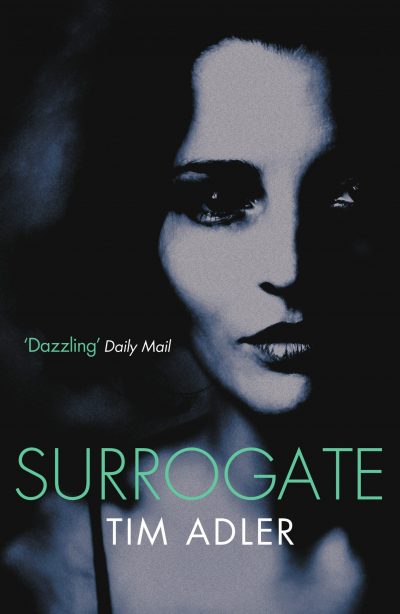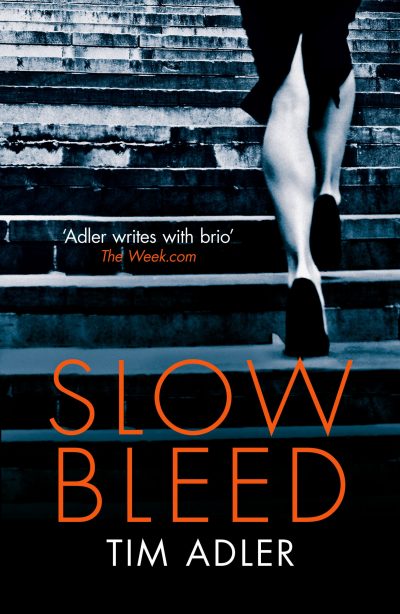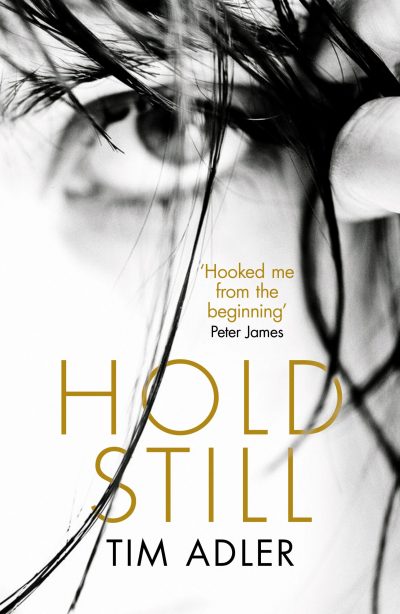Poor Ian Fleming. All that success in his own lifetime as he witnessed James Bond taking off, selling millions of copies around the world — Even his wife called him “Beatle Bond” –yet he was utterly miserable. “He gave the impression of not geing able to get out of bed without a bottle of vodka,” remembered one acquaintance. “I guess he drowned himself.”
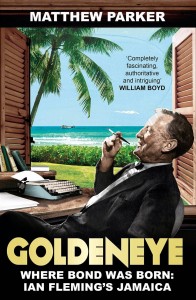 Trapped in a claustrophobic marriage with a brittle and dismissive wife (there is a story here about Fleming wandering in to one of his wife Ann’s smart London parties to find her guests roaring with laughter as they took turns to read Live and Let Die out aloud).
Trapped in a claustrophobic marriage with a brittle and dismissive wife (there is a story here about Fleming wandering in to one of his wife Ann’s smart London parties to find her guests roaring with laughter as they took turns to read Live and Let Die out aloud).
Matthew Parker’s Goldeneye is an exemplary biography of Fleming that is part social history of Jamaica in the Fifties, when the island was the playground of the rich (Noel Coward, David Niven, Lawrence Olivier [loved the ganja apparently] all pop up), and part an exploration of the Bond phenomenon – why has the secret agent become the biggest piece of intellectual property in the world? To date, the books have sold 60 million copies.
Fleming was one of the first to build a house in Jamaica, Goldeneye, where he wrote all the Bond books. The house must be on some creative lay line because not only did Fleming write all the Bond books there, but Sting strummed Every Breath You Take for the first time in the house while Truman Capote tapped out his brilliant The Muses Are Heard. (Goldeneye is jam-packed with fascinating Bond trivia – Bob Marley was turned down to be the house band in Dr No. Too wild and unruly.)
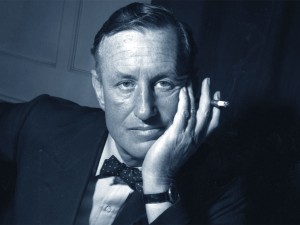 Bond’s appeal, according to Parker, is partly a wish fulfilment fantasy about a Britain in decline still having a say in the world at a time when it was humiliated by the Suez Crisis and divesting itself of colonies. I think it goes deeper than that. The fantasy of Bond is that of the multimillionaire playboy with a secret. Just as the wizard archetype plays out again and again whether it’s Harry Potter or Doctor Who, so there is something about the dark playboy that we respond to, whether it’s Tony Stark as Ironman or Bruce Wayne becoming Batman (although it could be argued that with Batman the roles are the other way round – the reality is an angry vigilante and a veneer of smooth multimillionaire). Don Draper in Mad Men is the same type. None of these men ever worry about money – Bond exists on a millionaire level and never thinks about saving crinkly receipts for MI6’s accounts department. (Spare a thought for the Bond super-villain accountant as well, clutching his head as he tots up the loss of a Japanese volcano converted into a rocket base, a submarine-swallowing oil tanker and a space station.)
Bond’s appeal, according to Parker, is partly a wish fulfilment fantasy about a Britain in decline still having a say in the world at a time when it was humiliated by the Suez Crisis and divesting itself of colonies. I think it goes deeper than that. The fantasy of Bond is that of the multimillionaire playboy with a secret. Just as the wizard archetype plays out again and again whether it’s Harry Potter or Doctor Who, so there is something about the dark playboy that we respond to, whether it’s Tony Stark as Ironman or Bruce Wayne becoming Batman (although it could be argued that with Batman the roles are the other way round – the reality is an angry vigilante and a veneer of smooth multimillionaire). Don Draper in Mad Men is the same type. None of these men ever worry about money – Bond exists on a millionaire level and never thinks about saving crinkly receipts for MI6’s accounts department. (Spare a thought for the Bond super-villain accountant as well, clutching his head as he tots up the loss of a Japanese volcano converted into a rocket base, a submarine-swallowing oil tanker and a space station.)
 Rationing was only ended in Britain in 1954 and one of the books’ attractions to the post-war readership was the fetisisation of luxury brands — from the Rolex watch to the Guerlain Fleurs des Alpes Bond washes with – plus the exotic travel. (Live and Let Die again, describing Manhattan: “Far below the streets were rivers of neon lighting, crimson, blue, green. The wind sighed sadly outside in the velvet dusk, lending his room still more warmth and security and luxury … He thought of the bitter weather in the London streets, the grudging warmth of the hissing gas-fire in his office at Headquarters, the chalked-up menu on the pub he had past on his last day in London: ‘Giant Toad & 2 Veg.’”) Parker makes an astute point when he says that Bond’s missions are only ever to upmarket holiday destinations from Jamaica to Switzerland and Las Vegas. Bond never goes to poor countries.
Rationing was only ended in Britain in 1954 and one of the books’ attractions to the post-war readership was the fetisisation of luxury brands — from the Rolex watch to the Guerlain Fleurs des Alpes Bond washes with – plus the exotic travel. (Live and Let Die again, describing Manhattan: “Far below the streets were rivers of neon lighting, crimson, blue, green. The wind sighed sadly outside in the velvet dusk, lending his room still more warmth and security and luxury … He thought of the bitter weather in the London streets, the grudging warmth of the hissing gas-fire in his office at Headquarters, the chalked-up menu on the pub he had past on his last day in London: ‘Giant Toad & 2 Veg.’”) Parker makes an astute point when he says that Bond’s missions are only ever to upmarket holiday destinations from Jamaica to Switzerland and Las Vegas. Bond never goes to poor countries.
Yet Bond moves through these landscapes full of melancholy and self-hatred — he too has the accidie which Mr Big complains about in Live and Let Die. Bond is frequently morose; nothing like the suave glib character Roger Moore portrayed swishing about on skis in an acid-yellow onesie. Here too Bond is really a self-portrait of his creator – Fleming kept a visitor’s book at his country house in Kent where guests would outdo each other to see who could write the world-weariest epigram.
Just as there will never be a rock band as big as the Stones again, so there will never be a character as popular as James Bond. He is a unique amalgam of cynicism and wish-fulfilment who keeps on satisfying our sweet tooth for fantasy.
Goldeneye: Where Bond was Born: Ian Fleming’s Jamaica by Matthew Parker is published by Hutchinson, and available to buy on Amazon UK here.

